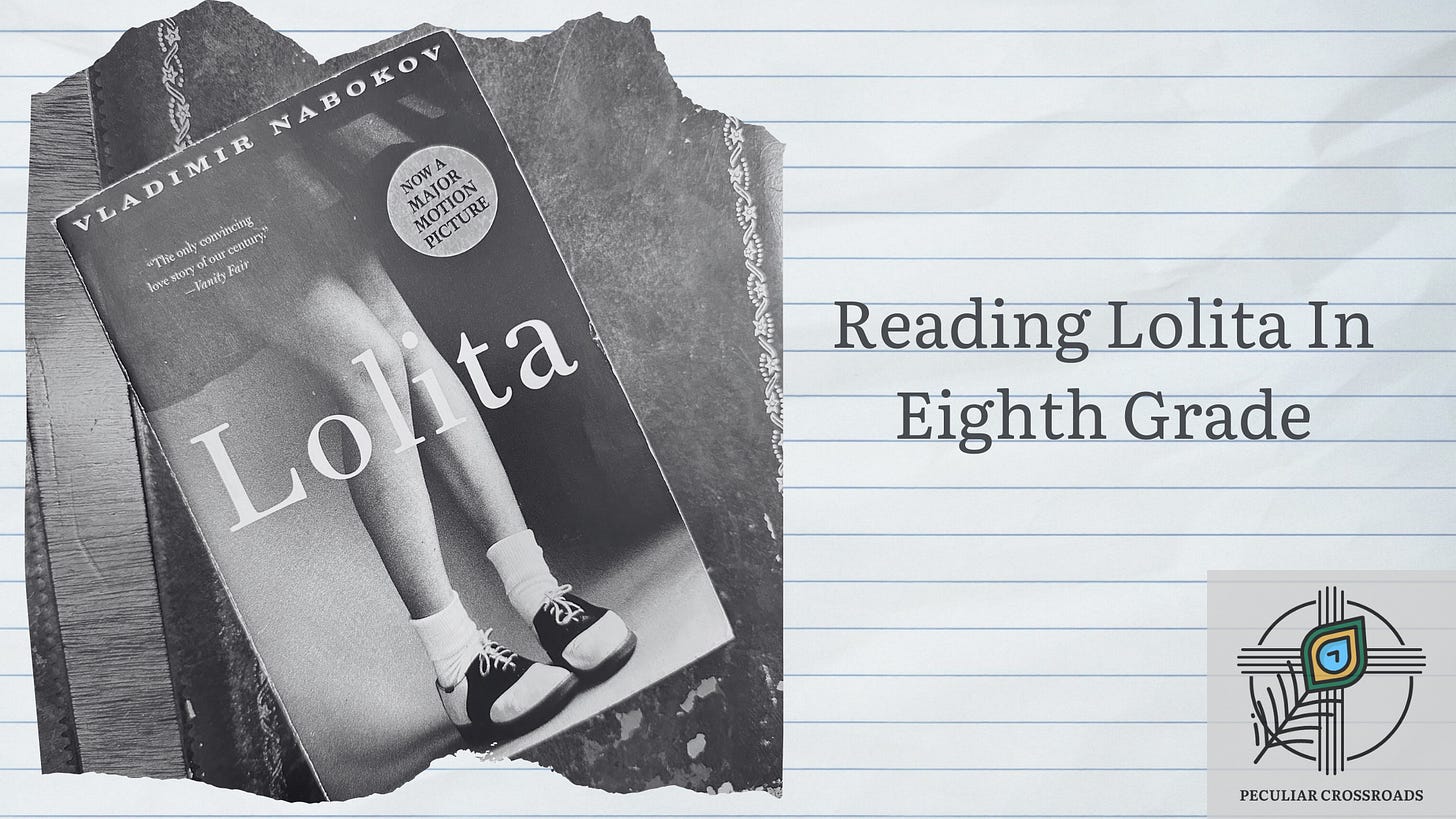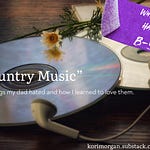Last week, I discussed Flannery O’Connor and what her dark, dissonant, and yet hopeful stories mean to me as an author and a believer.
However, although her writing is intensely disturbing, it’s not entirely unexpected for Christian writers to be influenced by her. I’ve met many believers with similar journeys to mine who also see her as significant to their faith.
Beyond Flannery, though, my list of books that have inspired me as a writer gets a little weird.
Okay, maybe a lot weird.
I know this isn’t exactly shocking, but I devoured books when I was a kid. And if you grew up in the ‘80s and ‘90s, you probably read the same ones I did. The Boxcar Children. Anne of Green Gables. Hatchet. The Babysitter’s Club. A Little Princess.
I loved to read, and I also loved to tell stories, put on plays, and act out epic tales with Barbies and toy dinosaurs. It was all a lot of fun. But it never occurred to me that stories could do more than just entertain or that there was more than one way to tell them.
That all changed when I started eighth grade.
One day, I went to the bookstore in my hometown of Kent, Ohio, and found a copy of Vladimir Nabokov’s Lolita. The cover featured a black-and-white photo of a girl shot from the knees down, the hemline of her dress just visible. She wore saddle shoes, and one knee was slightly popped forward in a kind of attitudinal posture.
Based on that cover, I knew I had to read that book. I had a thing for the 1950s, so maybe it was the saddle shoes. The back cover mainly included notes from scholars declaring it to be one of the great novels and barely a sentence about the plot, so the—ahem—content of the book didn’t really register.
Regardless, I had a gift certificate for the bookstore, and it was on sale, so I bought the book, unaware that I was walking into the landmine that is one of the most controversial books of the last century.
When I got home, I went to my room and started the book. As I began to read Nabokov’s intricate sentences and often sprawling prose, the reality of what I was reading sank in.
I was fourteen, so I thought the overall situation was gross. Or, as the kids today like to say, super cringe.
Yet, I was compelled to keep reading.
As the story unfolded, I periodically asked myself why I was so interested in it. I felt sorry for the characters, but I didn’t like them. In most of the books I’d read to that point, the lines between the good guys and bad guys were clearly drawn. I never had to question the characters’ motives, and the endings were always happy with some clearly-conveyed lesson or moral.
Before reading Lolita, I didn’t know that characters could be deeply flawed and hurtling toward consequences of their own making. I didn’t know that sometimes, they lie to readers and leave them questioning the characters’ true motives.
When I reached Lolita’s catastrophic conclusion, I knew I would never view fiction writing the same way again. I immediately knew those were the kinds of stories I wanted to write.
In last week's installment, I told a story about a lady I once went to church with who said that because I had such a great talent for writing, I should be writing fiction about people coming to know Jesus. When I tried to explain that I don’t write those kinds of stories, she pressed further, saying that I should because then I would be “truly pleasing God.”
This kind of thinking doesn’t just drastically limit storytelling for Christians. It compels us to clean up the world and polish it up so the dirty parts can’t be seen.
It’s not our job to clean up reality. That will only truly be accomplished at Christ’s glorious return.
If the world in its current sinful state doesn’t matter to God, then most of the accounts in scripture shouldn’t exist. A lot of the Bible is rated R—it contains violent battles, adultery, incest, cold-blooded murder, and people with horrific personal agendas whose actions have terrible consequences.
David held deep reverence for God yet committed a grievous sin against Him that impacted his reign as king. Jacob was cunning and deceitful. Ananias and Sapphira lied to the Holy Spirit to further their own reputations in the early church.
This is why so many authors turn to the Bible for character inspiration, tropes, and archetypes. It is a rich treasure trove of complex, flawed people. What’s more, they’re true stories about how God used all of them to further His plan for the world, whether they were vessels for honor or dishonor.
Perhaps that’s why stories like Lolita ring truer to me than most books in the Christian Fiction section. For better or worse, they’re closer to where we live.
However, though I credit Lolita with exposing these delicate nuances of storytelling and making me want to be a writer, I must admit that I view the book differently today. It may be a literary masterpiece, but the horrific realities of child trafficking and sexual abuse have made it much harder for me to stomach.
Reading Sarah Weinman’s harrowing book The Real Lolita, which tells the story of the real-life child abduction that likely inspired Nabokov, also significantly altered my perspective, as the similarities between real life and fiction are far too close for my comfort.
It’s okay to recognize that art that once spoke to you no longer fits how you see the world. Not all art is for every moment we live in, and sometimes we need to let things go.
Still, I’m grateful for the lesson Nabokov taught me about character development, motivation, and the often-messy nature of portraying the world as it is. That book with the saddle shoes on the cover? It’s still on my shelf, marked up from countless studies of the prose. My relationship to it has changed, but I don’t think I’ll ever fully escape it.
I’m interested to hear what you have to say on this topic. What stories have affected you despite being intensely disturbing and having deeply flawed characters? Drop your thoughts in the comment section.














Share this post